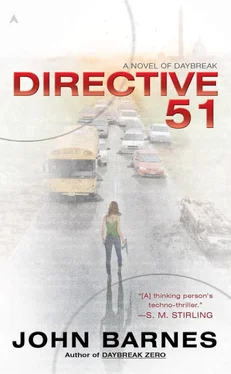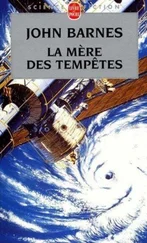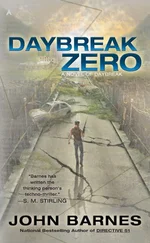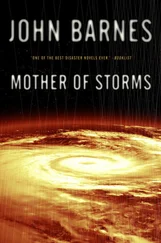“I can see the viewpoint,” Larry said. “I don’t suppose, while we’re here—”
Quattro grinned. “Hey, my inner teenage geek always needs other guys’s inner teenage geeks to hang out with. First chance, you and me are doing the extensive hangar tour—starting with that DC-3, and I’ve got about almost all of a Lockheed Electra 10, most of the guts in boxes. That one’s kind of iffy for getting to fly again. I’ll probably never have the shops and tech to refit my P-51 from the Dominican Air Force for post-Daybreak, and I’m not sure how much I can knock together from one fairly complete DC-6, three spare engines, and one DC-6 airframe. The real thing I’ve got my hopes pinned on is that I have—brace yourself… ta-da! Most of three Stearman Kaydets, one of them that I actually had flying before Daybreak.”
“I think our inner ten-year-olds are going to be best buddies,” Mensche said, “especially if yours likes to hear mine say, ‘Wow.’”
THE NEXT DAY. CAMBRIDGE.MASSACHUSETTS. SHORTLY AFTER MIDNIGHT EST. SUNDAY. NOVEMBER 3.
Building a radio station out of things you could find in the kitchen or the hardware store, plus scrap parts from everywhere, was the sort of interesting problem that MIT students enjoyed; it was a way to take their minds off the mess that surrounded them. Digging through the old paper library was fun in a nostalgic way, the trip out to off-campus storage with ROTC armed guards was a romantic adventure, and when finally they had a voltage controlled oscillator, built around five tubes that had been hand-built into test tubes and pickle jars, up and running, it felt like a major victory.
The crystal receivers for AM radio had been pulling in stories from KP-1 and Blue and Gold for a couple of days, so they had plenty of material for rebroadcast, and a couple of student reporters from the Tufts newspaper had managed to put together a local news report as well. FM radios that hadn’t been turned on or plugged in typically had not attracted many nanoswarm, and as word went from neighbor to neighbor, people dug out batteries and long-unused radios, wiped them with Drano and hydrogen peroxide, and heard the first news in several days.
So a surprising number of people were tuned in at two A.M. on Sunday, listening to the rereading of the day’s news, when the west wind began to rise. The hand-built anemometer at the improvised weather station on top of MacGregor jammed when nanoswarm from its bicycle-generator sensor penetrated the main bearing; two engineering students who climbed up to the roof to wipe and lubricate the anemometer looked southwest and saw the flames in Brookline.
The student announcer at WMBR broadcast the news immediately; within an hour, citizen volunteers were clearing fire lanes along Fisher Avenue and Lee Street, dragging wrecked cars out of the space, wetting down storefronts with water from the reservoirs, dousing the sparks that crossed the line, and helping fleeing residents find shelter.
Dawn came and the volunteers worked on in greater and greater numbers; at midmorning it began to snow, and the fire retreated.
By noon, the fire lanes were secure. Most people drifted away, but many lingered because of a rumor that they might all be paid, in food, or perhaps in a bus ride to a better location, or in an allocation of an abandoned house that had a woodstove—with something , at least, for their hours spent saving the city, sweating and hungry in the icy dark. Someone said that since the radio station at MIT had spread the word, probably the people who would pay them were there, and although most people didn’t want to walk that far, a few hundred made the trip, all the way across Harvard Bridge, marching in the thick snow, gaining determination to demand payment as they went.
The fighting may have started with nervous or overzealous ROTC guards, or perhaps the crowd, by the time it got there at around four in the afternoon, was simply too far gone into its desire to smash something. But by the time the so-called Battle of MIT was done, a dozen buildings were wrecked, much of the library had been carried off for fuel or burned in bonfires, and the radio station was off the air for good. When the National Guard arrived in the early hours of Monday morning, the campus was deserted, and there wasn’t much to do except catalog the damage.
LATER THAT EVENING. WASHINGTON. DC. PITTSBURGH. PENNSYLVANIA. AND MOST OF THE UNITED STATES. 7:00 P.M. EST. SUNDAY. NOVEMBER 3.
Chris Manckiewicz’s introduction for the radio presidential debate stressed that despite everything, voting would still take place on Tuesday, and added, “Because our Republic is stronger even than this.” He went on to explain Vote Where You Are, the system Shaunsen had worked out for people to vote on a simple honor system: find any State, Federal, or local official on election day, no matter where you were, give them your address and as many preferences as you could, and the votes would be passed up the chain, exchanged around among the states, until every vote came home to its proper roost.
“It’s the only thing about him that doesn’t make me gnash my teeth. It’s sort of weirdly magnificent,” Lenny said. “Shaunsen is a corrupt old idiot, but he’s so much a politician that he can’t imagine canceling an election. Heroic lack of imagination.”
“Shh,” Heather said, adjusting to hold him closer. “Shut up so I can hear the history getting made.”
His good hand ran gently down her flank, and she thought, Well, there’s something even more distracting. But she focused her attention and waited to hear the two candidates, sharing a moment with the rest of the country.
KP-1’s Tech Tips had broadcast directions on making workable crystal radios using Christmas LED bulbs as the crystal, which allowed you to add amplifying power from a battery, so it was hoped that a majority of surviving Americans would find a way to hear this broadcast; after all, it wasn’t as if there was a lot of competing entertainment.
Norcross spoke first, and surprised them by not mentioning religious faith at all; he simply said that he wanted the job of putting the country back on its feet, and he knew what a big job it would be.
Shaunsen repeated his long list of something for everyone, suggested that Norcross was apt to impose religious tyranny, and gay-ron-teed! that everything would be back to normal in two years; he reminded everyone to simply hand whatever public official they could find on election day, “Your name, your address, and the big bold words STRAIGHT DEMOCRAT!”
Manckiewicz asked about several subjects; the answer from Shaunsen was always a list of where they were spending money, and “Be sure to vote STRAIGHT DEMOCRAT!” After the third such conclusion, Lenny muttered, “Wonder how many gay Democrat votes he’s losing?”
“About like everyone else, straight, gay, male, female, black, white. Everyone with a brain who hears him,” Heather said.
“And same question, Mr. Norcross?”
Norcross said, “Well, it just seems to me that we can be balanced about this. No, the experts really don’t agree yet on whether we were attacked by what they call a ‘system artifact,’ meaning sort of a mind-virus that just kind of grew in the Internet like termites in the baseboards, or whether it was an actual act of war by some nation or terrorist outfit. But common sense says a reconstructed nation can fight better, and a secure nation can reconstruct better.”
“Isn’t it amazing what having a big, important job does to some people?” Lenny said. “Norcross went from Jesus nut to almost-statesman; Shaunsen went from third-rate to tenth-rate.”
“Yeah, I almost feel good about voting for Norcross. Where did he get all that system artifact stuff?”
Читать дальше












